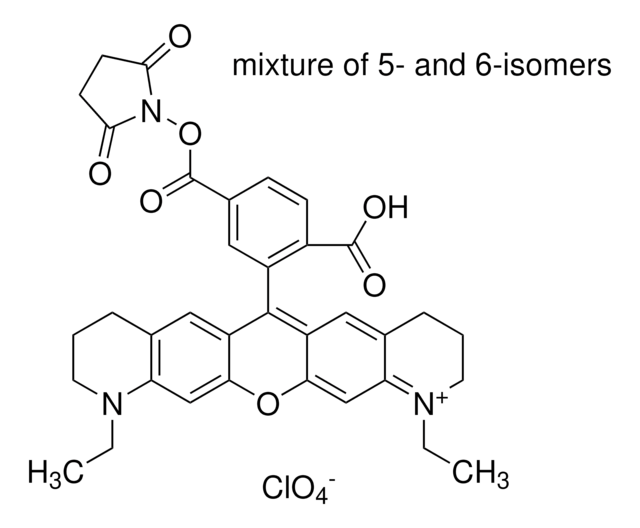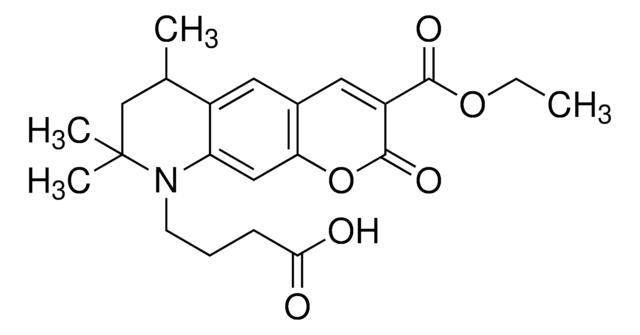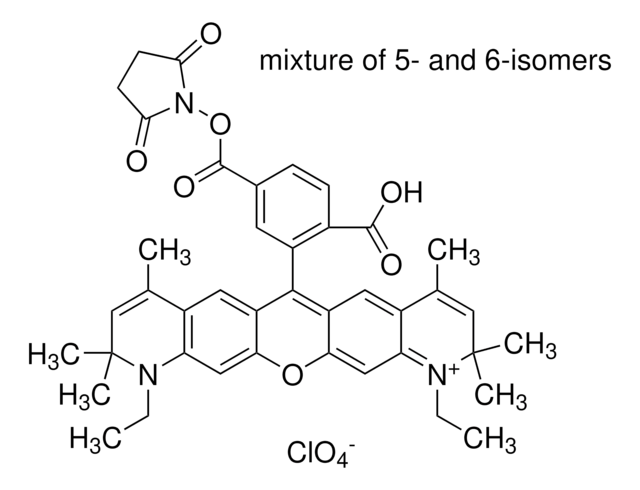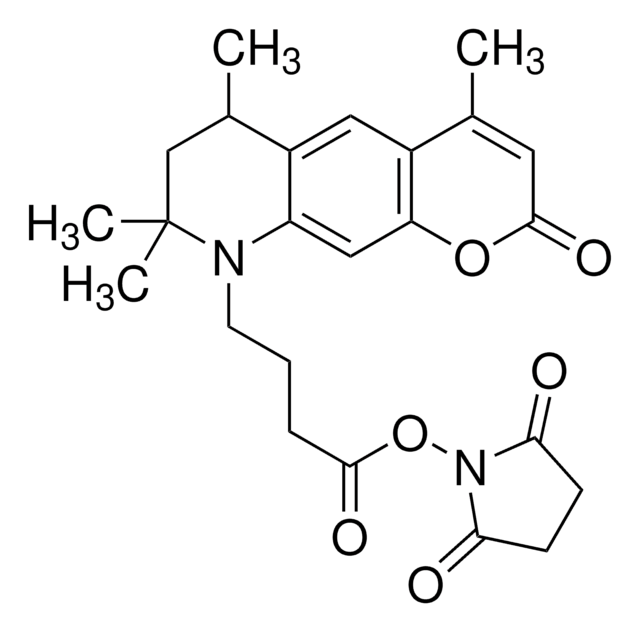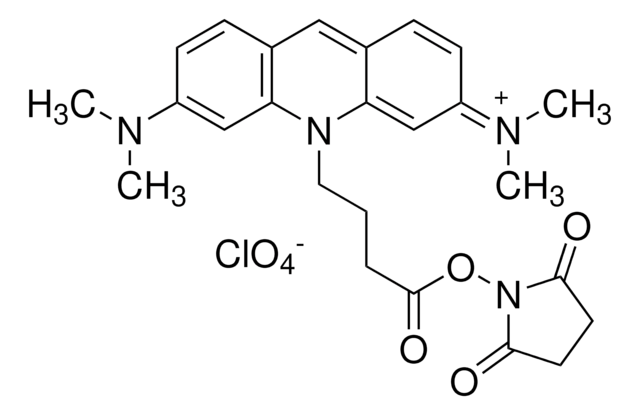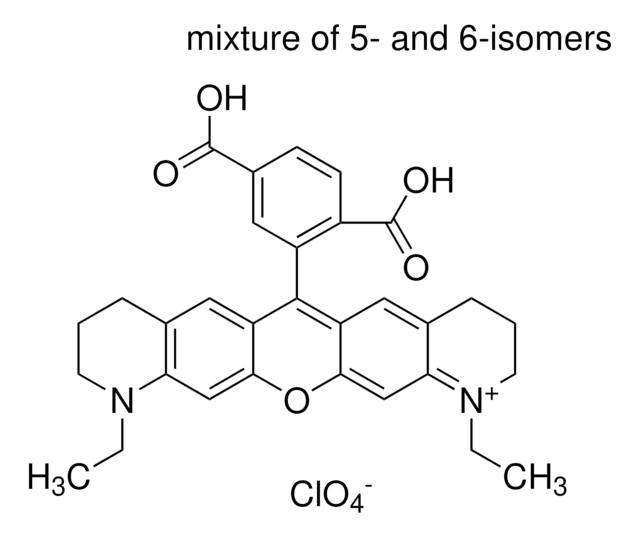Wichtige Dokumente
16805
Atto 425 NHS-Ester
BioReagent, suitable for fluorescence, ≥90% (HPLC)
Synonym(e):
Atto 425-N-hydroxysuccinimidester
About This Item
Empfohlene Produkte
Produktlinie
BioReagent
Qualitätsniveau
Assay
≥90% (HPLC)
≥90% (degree of coupling)
Hersteller/Markenname
ATTO-TEC GmbH
Löslichkeit
DMF: soluble
DMSO: soluble
H2O: soluble
λ
in ethanol (with 0.1% trifluoroacetic acid)
UV-Absorption
λ: 422-428 nm Amax
Eignung
suitable for fluorescence
Lagertemp.
−20°C
SMILES String
CCOC(=O)C1=Cc2cc3C(C)CC(C)(C)N(CCCC(=O)ON4C(=O)CCC4=O)c3cc2OC1=O
InChI
1S/C26H30N2O8/c1-5-34-24(32)18-12-16-11-17-15(2)14-26(3,4)27(19(17)13-20(16)35-25(18)33)10-6-7-23(31)36-28-21(29)8-9-22(28)30/h11-13,15H,5-10,14H2,1-4H3
InChIKey
PUEQEMDTFPYCDY-UHFFFAOYSA-N
Allgemeine Beschreibung
Anwendung
Sonstige Hinweise
Rechtliche Hinweise
Sie haben nicht das passende Produkt gefunden?
Probieren Sie unser Produkt-Auswahlhilfe. aus.
Lagerklassenschlüssel
11 - Combustible Solids
WGK
WGK 3
Flammpunkt (°F)
Not applicable
Flammpunkt (°C)
Not applicable
Persönliche Schutzausrüstung
Eyeshields, Gloves, type N95 (US)
Analysenzertifikate (COA)
Suchen Sie nach Analysenzertifikate (COA), indem Sie die Lot-/Chargennummer des Produkts eingeben. Lot- und Chargennummern sind auf dem Produktetikett hinter den Wörtern ‘Lot’ oder ‘Batch’ (Lot oder Charge) zu finden.
Besitzen Sie dieses Produkt bereits?
In der Dokumentenbibliothek finden Sie die Dokumentation zu den Produkten, die Sie kürzlich erworben haben.
Kunden haben sich ebenfalls angesehen
Unser Team von Wissenschaftlern verfügt über Erfahrung in allen Forschungsbereichen einschließlich Life Science, Materialwissenschaften, chemischer Synthese, Chromatographie, Analytik und vielen mehr..
Setzen Sie sich mit dem technischen Dienst in Verbindung.